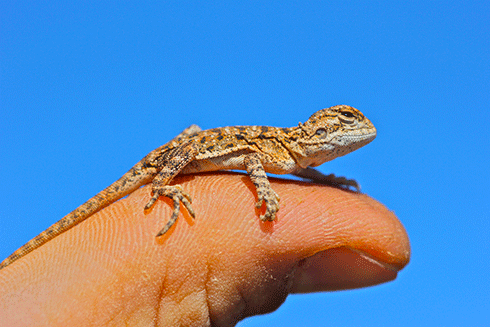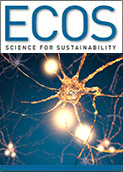
|
Published: 5 May 2014
Environmental experts meet for national ‘Grand Workshop’
Australia’s leading environmental scientists are meeting in Canberra this week to discuss the health of Australia’s wildlife and native ecosystems at a ‘Grand Workshop’, hosted by the

|
|
A western netted dragon: a tiny piece of Australia’s ecological ‘jigsaw puzzle’ that scientists plan to tackle this week. Credit:
Tim Doherty/Bush Heritage Australia
|
‘This is the age of data – and there is plenty of it. The challenge lies in assembling it into a meaningful form that helps us understand what is really going on with our environment,’ says ACEAS director, Associate Professor Alison Specht.
‘This will give us the ability to act more quickly and cost effectively to protect species or environments which are coming under acute pressure.
‘In times of tight budgets and scarce resources, analysis and synthesis of our existing information helps government to prioritise, scientists to understand and citizens to support the work of conserving wild Australia for future generations.’
Key issues being discussed at the meeting include:
-
What is driving the new wave of Australian animal extinctions that threatens up to 100 native animals.
-
Creating a ‘big picture’ of native animal movement across the continent from hundreds of individual electronic tagging projects.
-
Assembling a nationwide ‘spy network’ to understand how native trees and animals are responding to climate change.
-
Unveiling a new website which taps into the vast resources of Aboriginal knowledge and wisdom about the Australian environment to help protect it in future.
-
The first detailed nationwide look at land use and how it can help Australians, especially farmers, to find new ways to coexist with the native landscape.
-
The state of our atmosphere for asthma and hay fever sufferers.
-
The condition of our freshwater environments and local extinction risks among native fish and frogs.
‘Over many years it has been clear that environmental scientists have been studying the pieces of the jigsaw puzzle – and it is becoming increasingly urgent to assemble the big picture and see what is going on overall,’ Assoc. Professor Specht says.
‘This is a worldwide scientific trend, but Australia – thanks to our long and detailed investment in data gathering about our unique wildlife – is among the leaders in the field.’
Another highlight of the Grand Workshop is a ‘Hypothetical’ being led by Professor Nick Rowley.
The scenario focuses on a hypothetical new clean fuel, and what to do when the environmental benefits and risks of using it aren’t clear. A team of experts have been brought together to consider the proposition. The event is held on May 8, from 6.30–8pm at The Shine Dome, and will be livestreamed.
Source: ACEAS/University of Queensland



